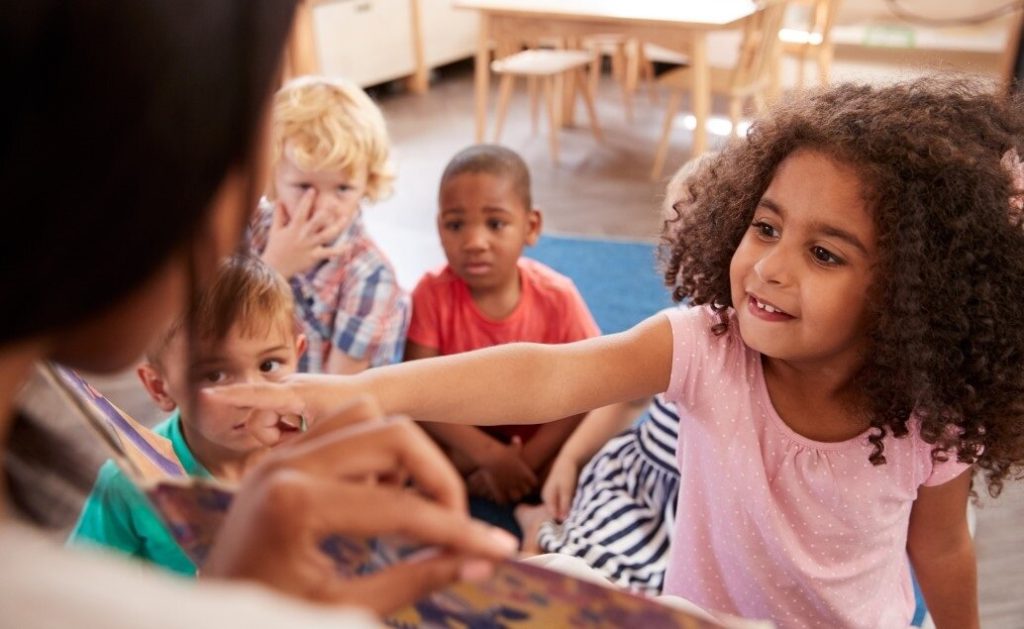
Parent-teacher conferences: the week when spending every weekday only with children who make my heart burst with joy comes to a screeching halt. Like the Netflix bill you receive each month, conference week is the price you pay for getting to have something you love, and in my case, that is a career of teaching young children.
The night before a particular conference, I reviewed the last few report cards for a boy named Mitchell, and most of them looked exactly the same. Mitchell is an excellent student. He is a good friend, and he particularly excels in math. But…(there is always a but, isn’t there?)…Mitchell needs to be more verbal. He is shy and doesn’t always feel comfortable speaking up in class. The next morning, I sat fidgeting nervously, waiting for the conference to begin. Because today I am not a teacher; I am a mom and Mitchell is my son.
A few minutes later, I listen as a tiny but intense woman speaks of my son’s progress, and gushes over the wonderful, smart student that he is. As the conference nears its end, I summon the courage to ask about the topic that has not been discussed for the first time in a conference since he was in preschool. “So…what about his shyness? Do you think this is something we need to work on?” His teacher waved her hand at me and said: “What? No! Mitchell is perfect, just the way he is. Why would anyone want to change him? He’s quiet. So what? The world could use more people who aren’t always talking.” Boom — mic drop. This teacher just became my hero, because she isn’t telling me who my 8-year-old should be — she just appreciates who he is.
Fifteen years later, I sit with a group of 3-, 4-, and 5-year-olds, and I decide to do a Circle of Compliments, because they haven’t been as kind to each other today, and I think that feeling good about themselves will help them be kinder. I have never forgotten how my son’s teacher accepted and valued him, and I have tried to do the same for the many students I have had since that conference meeting so many years ago.
I begin by telling a little girl I think she will be the president of the United States one day because she is such a great leader. She smiles broadly and then tears up. I ask her why, and she says she doesn’t know. I suppose the moment was just a bit powerful for her, so we hug and move on with our day. She has great parents, but I also want her to know that a teacher thought she was awesome when she was 5-years-old. I hope she remembers that someday when she is older and feeling unsure about herself.
How can we make our students feel important, honored and self-assured every day? Here are five ways to begin:
- Remember the noise that represented the teacher on the early Charlie Brown episodes? Wah, wah, wah. Our students don’t only need that droning sound of instruction from us. Sometimes they need to hear we think they’re fabulous, regardless of their interests, talents, race, gender, gender identity, socioeconomic background, body type or cultural background.
- Celebrate the differences. Acknowledge their holidays, and mention it if you love their traditional clothing and how they speak more than one language. Remember, it can be a cruel world out there. Make your classroom a safe haven where cultural differences are admired every single day.
- Share your own shortcomings. Any child who has ever been in my class knows that I often begin circle time by saying: “So there I was, minding my own business…” What follows typically is a story about how I fell down the stairs, put on mismatched shoes and wore them all day, or made some other mistake that sounds silly and makes them laugh. I want them to know that everyone stumbles, and that it’s usually not a big deal for long.
- Listen to them. Parents and teachers suffer through endless stories that go nowhere when we spend time with young children. But by listening to children, we let them know that we believe what they are saying, thinking and feeling is important to us.
- Put it in writing, so they never forget. When my students graduate, I write them a note about how wonderful I think they are and how lucky I am to have been their teacher. Yes, it is time-consuming. But that feeling when I run into those kids and find out they have held on to my notes for years? Priceless.
Become the best teacher you can for your students by earning your master’s in education from American College of Education. Explore all our master’s programs to find the one that best fits your needs.

